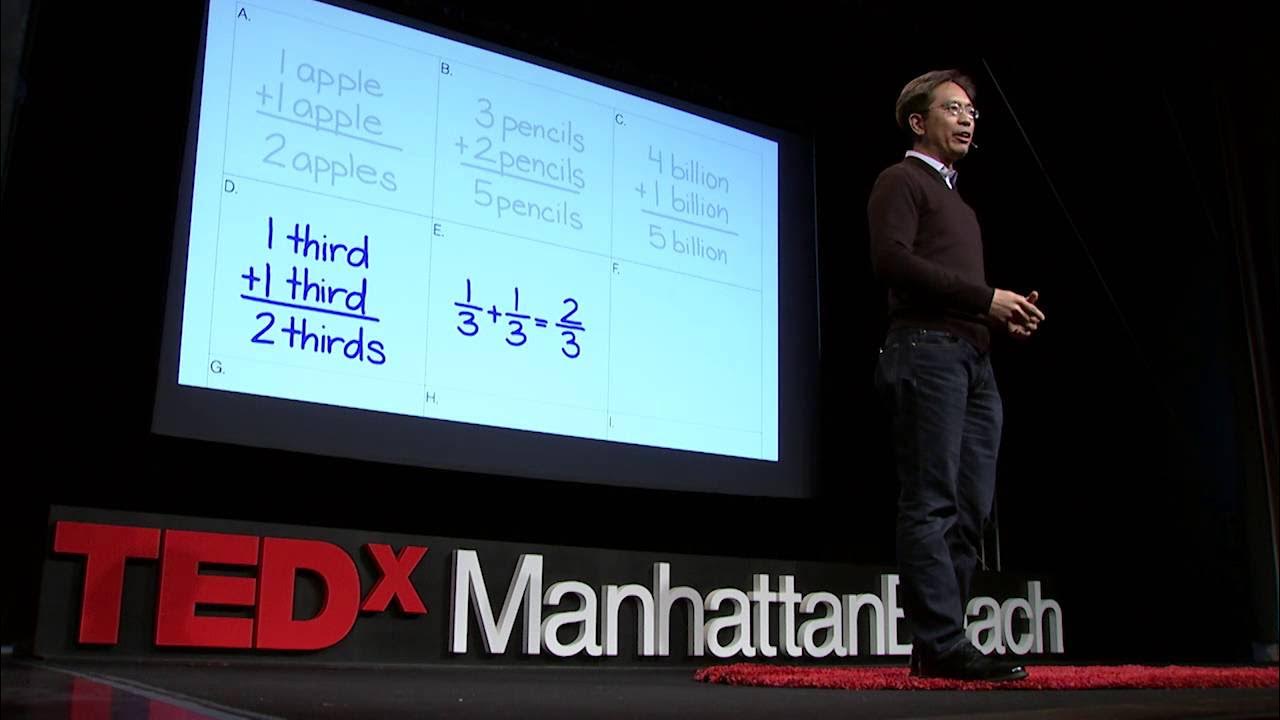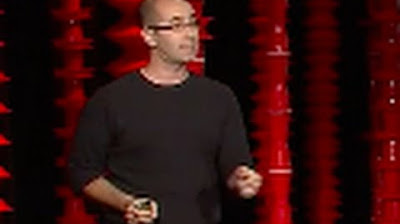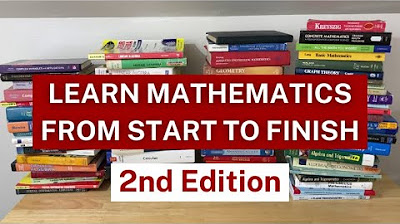Why teach calculus?: Daniel Ashlock at TEDxGuelphU
TLDRThe speaker discusses the widespread teaching of calculus in universities, questioning its necessity and relevance for most students. They argue that calculus is complex and often taught as a ritual without a solid understanding of its mathematical foundations. The talk explores alternatives to calculus, such as combinatorics, probability theory, linear algebra, and algorithmic mathematics, which are more applicable, easier to teach, and foster problem-solving skills. The speaker criticizes the focus on standardized testing in schools and the high cost of textbooks, advocating for a more diverse and accessible approach to math education.
Takeaways
- 📚 The speaker discusses the abstract nature of teaching calculus and its relevance to students, noting a significant drop in hands raised when asking who will need it.
- 🤔 The concept of limits in calculus is introduced, which is foundational but can be confusing, as it involves division by zero in a theoretical sense.
- 📉 The historical development of calculus is touched upon, with a humorous anecdote about the dispute between Leibniz and Newton over its invention.
- 🔢 The speaker highlights the idea of infinitesimals and their importance in calculus, and the surprising revelation that there are different types of infinity.
- 🏫 The current state of math education is criticized, with calculus being taught as a ritual without a deep understanding of the underlying math.
- 🚀 The historical context for the widespread teaching of calculus is explained, relating to the Cold War and the need for more engineers and scientists.
- 🤝 The speaker suggests alternatives to calculus, such as combinatorics, probability theory, linear algebra, and algorithmic mathematics, which have practical applications and are easier to teach.
- 🌐 The importance of the internet in providing accessible educational content is emphasized, with mentions of resources like Vi Hart's videos and Khan Academy.
- 📈 The speaker argues for a shift away from standardized testing in schools, which they believe detracts from a meaningful education and damages students.
- 💡 The potential of teaching practical math, like probability theory, is put forward, suggesting it could be a more beneficial first math course for students.
- 🎨 The script concludes with a personal touch, showing the speaker's interest in fractals and the creative potential of math, and a call for a more diverse and engaging math education.
Q & A
Why does the speaker believe that calculus is often the first advanced math course taught in universities?
-The speaker suggests that calculus was adopted as the default advanced math course due to the historical need for more aerospace engineers and rocket scientists during the time of the Russian Communist threat. Calculus is incredibly useful in engineering, which is why it became a standard part of the curriculum.
What does the speaker imply about the teaching methods of calculus?
-The speaker implies that calculus is often taught as a set of rituals and memorized techniques, rather than a deep understanding of the mathematical concepts. This approach can lead to students not truly grasping the principles behind the techniques they are using.
What is the 'limit' in calculus, and why is it considered the key to understanding calculus?
-The 'limit' is a fundamental concept in calculus that involves finding the value a function approaches as the input approaches a certain point. It is considered the key to calculus because it allows for the calculation of derivatives and integrals, which are central to the field.
What is the speaker's view on the current state of math education in high schools?
-The speaker criticizes the current state of math education in high schools, stating that the curriculum has been significantly reduced and that there is an overemphasis on teaching to standardized tests rather than actual mathematical understanding.
What alternatives to calculus does the speaker suggest as potential first advanced math courses?
-The speaker suggests alternatives such as combinatorics, probability theory, linear algebra, algorithmic mathematics, and graph theory as potential first advanced math courses, as they are easier to teach, have practical applications, and foster problem-solving skills.
Why does the speaker argue that probability theory could be a better first math course than calculus?
-The speaker argues that probability theory could be a better first course because it provides a solid foundation for statistics, enhances problem-solving skills, and is more relatable and applicable to everyday situations, making it easier to teach and understand.
Outlines
📚 The Quandary of Teaching Calculus
The speaker begins by questioning the widespread teaching of calculus, noting the significant drop in hands when asking who will need it. They humorously discuss snowflake symmetry to de-stress and transition into the concept of limits in calculus, which is foundational but often confusing. The talk delves into the historical development of calculus, mentioning the contributions of Leibniz and Newton, and the debates surrounding the rigor of infinitesimals. The speaker criticizes the teaching of calculus as a set of rituals rather than a deep understanding, suggesting it's insanity to teach such complex math to first-year university students.
🚀 Calculus' Role in Various Fields and Its Historical Importance
This paragraph explores the utility of calculus in physics, engineering, and other fields, and how the Cold War led to its emphasis in education to produce more aerospace engineers and scientists. The speaker criticizes the lack of alternatives to calculus in the curriculum and how high school math education has been reduced, focusing on standardized test scores rather than actual mathematical understanding. They express concern over societal pride in mathematical illiteracy and its consequences.
🔍 Exploring Alternatives to Calculus in Education
The speaker advocates for alternatives to calculus, such as combinatorics, probability theory, linear algebra, algorithmic mathematics, and graph theory, each with its own applications in various fields. They argue these subjects are not only more applicable and easier to teach but also provide a better foundation for further studies. The speaker shares personal experiences in integrating physics with calculus and the positive outcomes of a faster-paced, application-focused approach.
🛠 Overcoming Barriers to Math Education Reform
Here, the speaker identifies barriers to reforming math education, including the entrenched belief in the necessity of calculus, institutional inertia, budgetary concerns, and the inflexibility of some faculty. They also criticize the textbook industry for its high costs and resistance to change, sharing their own experiences with writing and translating textbooks, and their decision to make educational materials freely available online.
🌐 The Potential of the Internet and Public Awareness in Math Education
The speaker emphasizes the role of the internet in disseminating educational content and encourages the exploration of various mathematical fields beyond calculus. They suggest practical applications of math in everyday life and advocate for a shift away from standardized testing in schools. The speaker also highlights the importance of public awareness and the need to move away from the notion that math is a monolithic and unchanging discipline.
🎨 The Infinite Nature of Mathematics and Its Educational Implications
In the final paragraph, the speaker reflects on the infinite nature of mathematics, with its endless possibilities for exploration and learning. They express disappointment in the current educational system for ignoring the vast majority of mathematical knowledge and for not inspiring students to appreciate the beauty and utility of math in its many forms. The talk concludes with a call to embrace the boundless potential of math and to reform education to reflect this reality.
Mindmap
Keywords
💡Calculus
💡Limit
💡Infinitesimal
💡Differentials
💡Combinatorics
💡Probability Theory
💡Linear Algebra
💡Algorithmic Mathematics
💡Graph Theory
💡Standardized Testing
💡Fractals
Highlights
The speaker discusses the abstract nature of teaching calculus and its relevance to students.
A humorous anecdote about the impossibility of a five-fold symmetric snowflake in nature.
The explanation of the concept of limits in calculus
Transcripts
Browse More Related Video

Math isn't hard, it's a language | Randy Palisoc | TEDxManhattanBeach

Why is algebra so hard? | Emmanuel Schanzer | TEDxBeaconStreet

Episode 2 - Why is AP Physics so Hard?

Algebra vs. Calculus – What’s The Difference?

What Math Classes Do Physics Majors Take?

Learn Mathematics from START to FINISH (2nd Edition)
5.0 / 5 (0 votes)
Thanks for rating: